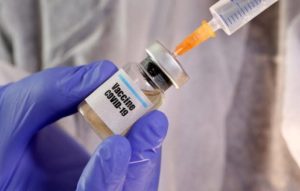The Federal Government says it has released ₦10billion to finance domestic vaccine production in Nigeria. The Minister of Health, Dr Osagie Ehanire revealed this during a media briefing by the Presidential Task Force (PTF) in Abuja recently. The minister said Government is working to formulate the country’s vaccines.

He further announced that the first consignment of COVID-19 vaccines would arrive the country in a few weeks.
The N10 billion for local vaccine production, he explained, was released by the Ministry of Finance
The minister of health said the government is exploring the option of local production of the vaccines in the country and have had discussions with a producer.
He, however, noted that while the nation seeks to get its vaccines, other options are being explored for licensed production in collaboration with recognized institutions.
On importation of vaccines, he said Nigeria had requested 10 million doses of the injection, which could be supplied from March.
‘‘Preparing COVID-19 vaccine requires that countries determine criteria for prioritisation, develop robust vaccine distribution strategy, identify vaccine administration sites and sustainability plan,’’ he said.
The minister said Nigeria was exploring options for the acquisition of approved vaccines and participating in the African Union initiative called “African Vaccine Availability Task Team”, which reports directly to the African Union Chairman, President Ramaphosa of South Africa, and has secured 270 million doses of various types of vaccines.
Regarding reports of claims by some persons in Nigeria, to have COVID-19 vaccines for sale in the country, Dr Ehanire advised all citizens to disregard these claims as they are criminal.

“There are procedures for vaccine acquisition and use which include appropriate regulation and certification by NAFDAC,” the minister stated, as he warned against the risk of fake vaccines.
Dr Ehanire also noted that while the prospect of a vaccine arriving soon is cheering, the importance of non-pharmaceutical measures remains critical to preventing infections.
“Wear your face masks, wash your hands regularly or use hand sanitisers, avoid close contacts and crowded places and if you have symptoms like cough, difficulty in breathing, sudden loss of taste and smell, and fever, please get tested,” the minister advised.